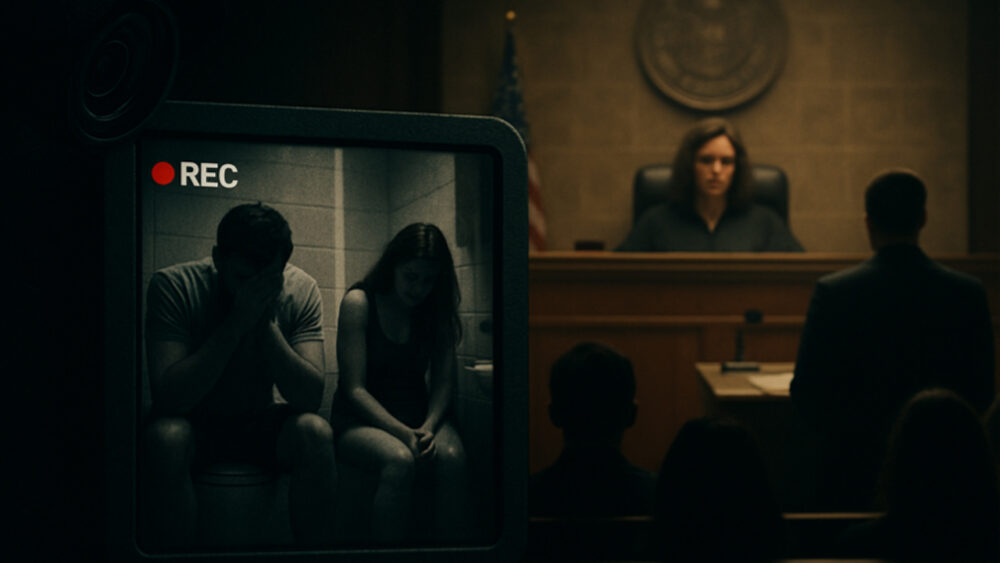When a crime crosses state lines, it exposes not just an offender but the differences in how states hold violent criminals accountable. That’s why we’re covering the case of Redwolf Pope, which began in 2018 in Santa Fe, New Mexico, and now plays out in Seattle, Washington, under Judge Tanya Thorp. As Texans watching this unfold, we have reason to ask how Washington’s judicial culture compares to ours, especially when it comes to sentencing repeat violent predators convicted of sexual assault.
A Predator’s Path Across States
In 2020, Mr. Pope was convicted in New Mexico of criminal sexual penetration (rape) and voyeurism after his roommates found videos of him raping an unconscious woman and turned the evidence over to law enforcement. He was swiftly sentenced to four years in prison by District Court Judge Mary Marlowe Sommer, receiving credit for two years served while awaiting trial.
After his release in May 2022, Pope was immediately extradited to Washington State, where he faced five counts of second-degree rape and four counts of first-degree voyeurism.
The crimes mirrored those in New Mexico: videos of unconscious women being assaulted, found by the same roommates who exposed him before.
Still, this time, the process slowed to a crawl.
Pope was permitted to represent himself during an eight-week trial. On September 3, 2025, Seattle jurors found him guilty on all counts after deliberating only one hour and fifteen minutes, a verdict as clear as it was swift. Yet the justice that seemed certain has again been deferred.
Judge Thorp originally scheduled sentencing for October 10, 2025, but Pope, still acting as his own attorney requested multiple continuances. The latest? To allow him to hire a mitigation specialist.
For those unfamiliar: a mitigation specialist is hired to portray the convicted “in the best light” before a judge, humanizing the defendant and potentially securing leniency.
Judge Thorp has now postponed sentencing until December 5, 2025 – nearly two months past the original date. Victims don’t ask for miracles. They ask for accountability and a sense of justice from the criminal justice system.
Mitigation has a legitimate role in complex or capital cases. But applying it here to a man now a six-time convicted rapist guilty of sexual assault in two states risks signaling that the pain of survivors ranks below the image of the predator. Each delay reopens wounds for victims who have already relived their trauma on the witness stand. Justice is not meant to be an endurance test for those who survived the crime.
The Survivors Who Spoke Up
Court records confirm that at least two women were sexually assaulted by Pope in his Seattle apartment, their assaults recorded on his own devices, alongside secret bathroom videos of both male and female roommates. These men and women came forward publicly – acts of extraordinary courage in any sexual assault case.
Now, more than seven years since Pope’s first arrest, they are again forced to wait while the man found guilty of assaulting them is granted another chance to re-frame himself as sympathetic before sentencing. Every postponement deepens their anguish and erodes public faith that justice will ever be carried out fully.
Multiple outlets and Indigenous organizations have reported allegations that Pope falsely presented himself as Native American and misstated his tribal affiliation on documents.
These remain allegations – the kind requiring verification through official records – but if true, they highlight a pattern of manipulation and deception that extends beyond his crimes.
Where Is the Media?
Pope’s New Mexico conviction in 2020 drew national coverage and community outrage.
Yet his Washington trial and conviction, for equally brutal crimes, have passed with barely a whisper in local media.
Judge Thorp, who has served on the King County Superior Court since 2014, is well-known for her role in programs promoting diversity and collaboration within the legal community. She, Mr. Pope, and the two Seattle rape victims all studied at Seattle University School of Law albeit at different times. Her public service background and her judicial position also require openness to scrutiny, transparency and accountability.
The silence of Seattle-area outlets raises difficult questions:
- Why has no local press examined the repeated sentencing delays in this high-profile violent-crime case?
- Why isn’t there active persistence to place him in prison for life?
- Has the media grown too comfortable with familiar judges and institutions to challenge them?
- And why must a newspaper hundreds of miles away in Texas ask the questions that protect sexual assault survivors and uphold public trust?
No judge, anywhere in America, should be considered beyond examination. When courts act in silence, trust collapses and survivors feel abandoned and forgotten!
The Danger of a System That Bends Too Far
Judges have discretion. But when that discretion consistently bends toward the convicted, especially in violent-crime cases, it threatens not just safety, but the moral foundation of justice itself.
In Texas, courts in similar cases often move decisively. Would a Texas judge grant months of delay for a convicted rapist to craft a narrative about his character?
Questions Texans and All Americans Should Be Asking
- How often do Washington judges permit mitigation delays in violent-crime cases, and what oversight exists?
- How often do Texas judges allow the same, and under what justification?
- Are these continuances applied consistently, or do self-represented defendants receive extra leniency even when proven guilty?
- Should violent crimes involving sexual assault ever be subject to repeated delay under the banner of “character review”?
Without transparency, justice risks becoming a stage play — one where the offender perfects his lines while survivors sit in the audience, waiting for closure that seemingly never comes.


